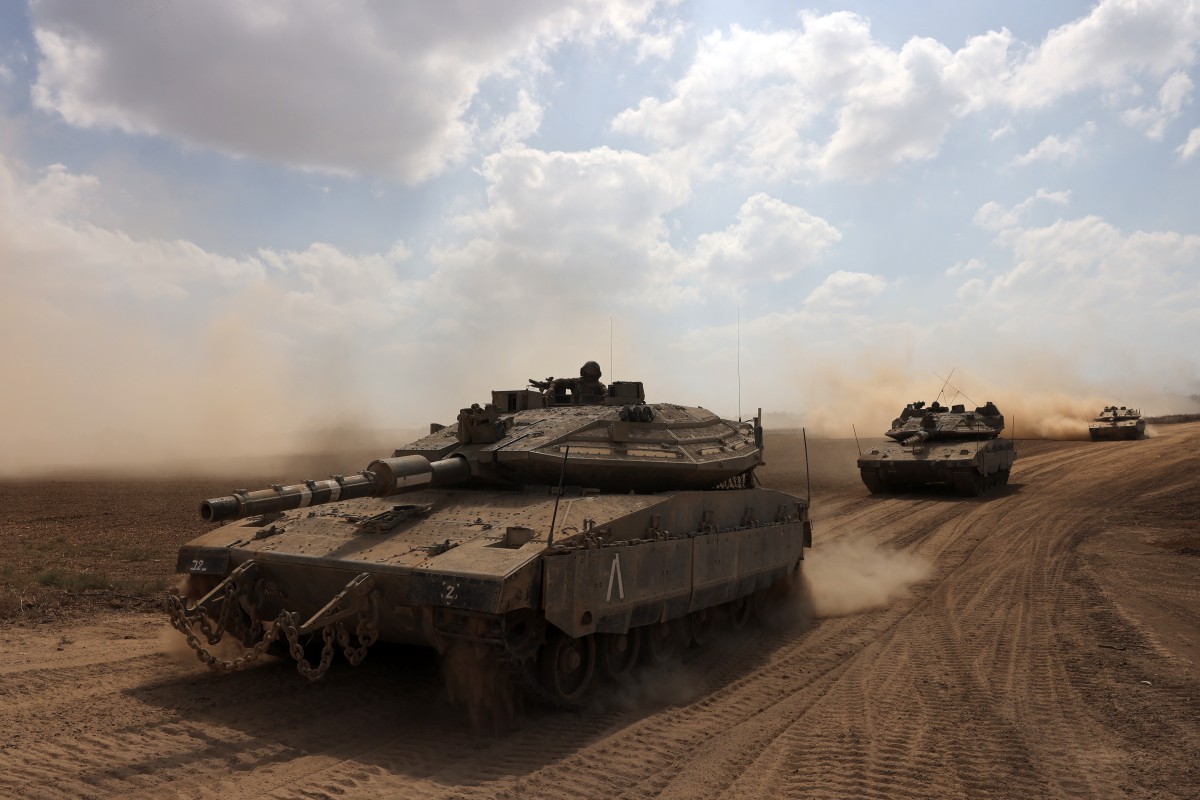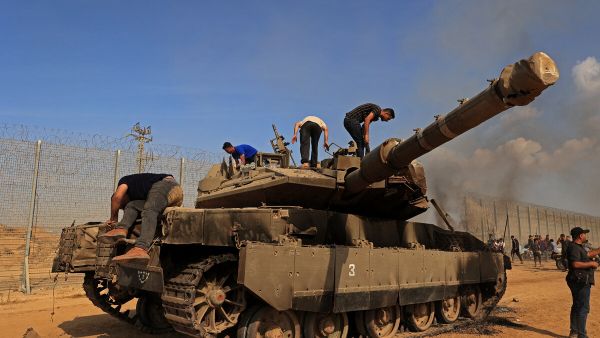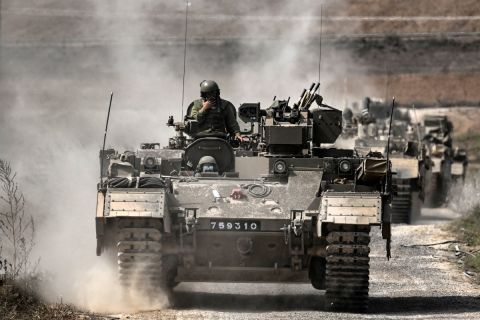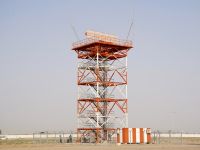Occupation pledges $30b to boost Shekel on top of $54.4b in damages since surprise Gaza attack
ALBAWABA – The surprise Gaza attack launched 18 days ago has cost the occupation economy more than $74 billion, including more than $20 billion in losses incurred to the Tel Aviv stock exchange and another $30 billion the Israeli central bank pledged to sell to bolster the plummeting Shekel.
On the military front, the occupation has incurred more than $4.4 billion in damages from lost and seized machinery, tanks, helicopters, infantry equipment, soldiers, and Iron Dome interceptors. In Addition to another tank and two bulldozers, destroyed by Palestinian resistance fighters in Gaza on Sunday.
More so, the costs of preparing a fraction of the recalled reserve and auxiliary forces, totalling 330 thousand troops, including those on active duty, is expected to exceed one trillion US dollars.
According to Bloomberg, Israeli authorities are set to offer their first accounting of the toll of the ongoing genocide in Gaza and the surprise Gaza attack on their economy soon.
The Israeli central bank is convening to review interest rates just over two weeks after the Palestinian resistance group Hamas launched their attack, in an attempt to stabilize markets.

Israeli preparations may cost more than $1 trillion ahead of land invasion after the surprise Gaza attack - AFP
To do so, the bank must study the economic impact of the attack and the ongoing military efforts to prepare for a land invasion in the besieged enclave.
So far, the central bank has pledged to to sell as much as $30 billion to support the shekel.
While the shekel’s declines first began months ago with the Israeli government’s judicial “reforms”, the shock of the conflict has accelerated its depreciation to the weakest levels in eight years.
The shekel has dropped every day since October 7 and is among the world’s worst performers this month with a loss of almost 6 percent against the dollar, Bloomberg reported.
Israeli authorities are meanwhile planning a massive military stimulus program, with the budget deficit possibly widening this year to 3.5 percent of GDP.
Though policymakers have pointed to the shekel’s depreciation as the main inflationary risk, the war could bring huge disruption to the economy.
Actual Israeli damages resulting from the surprise Gaza attack are still unfolding and are difficult to determine at the moment. The same goes for the exact costs of the ongoing genocide in Gaza and the military preparations for invasion.
However, the central bank’s report, upcoming, will shed some light on the actual damages and costs so far, at least partially, thus far.









